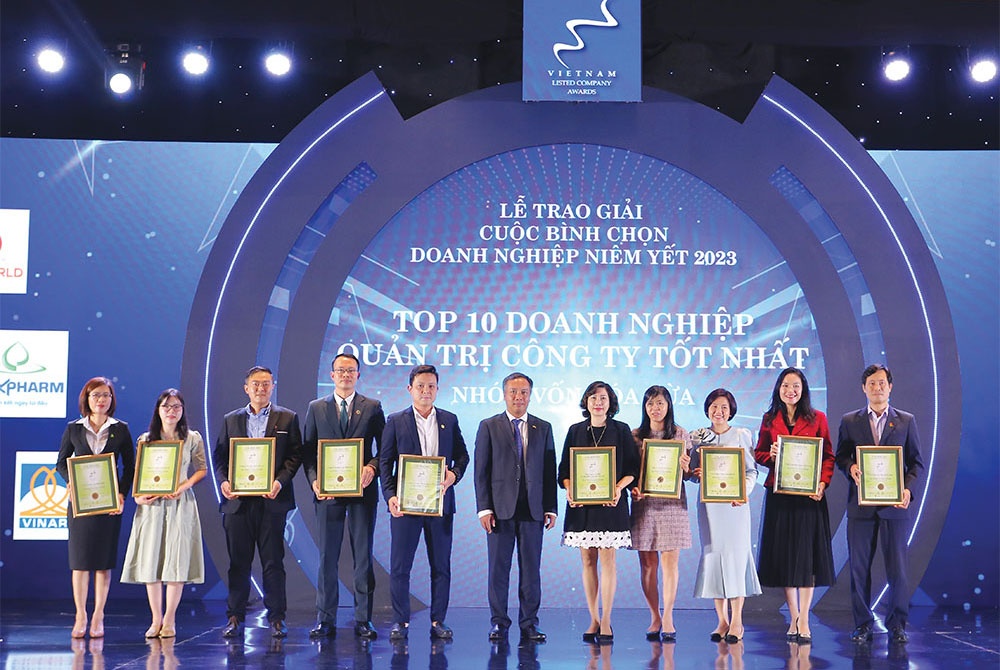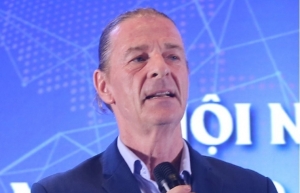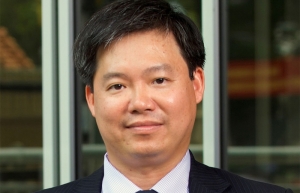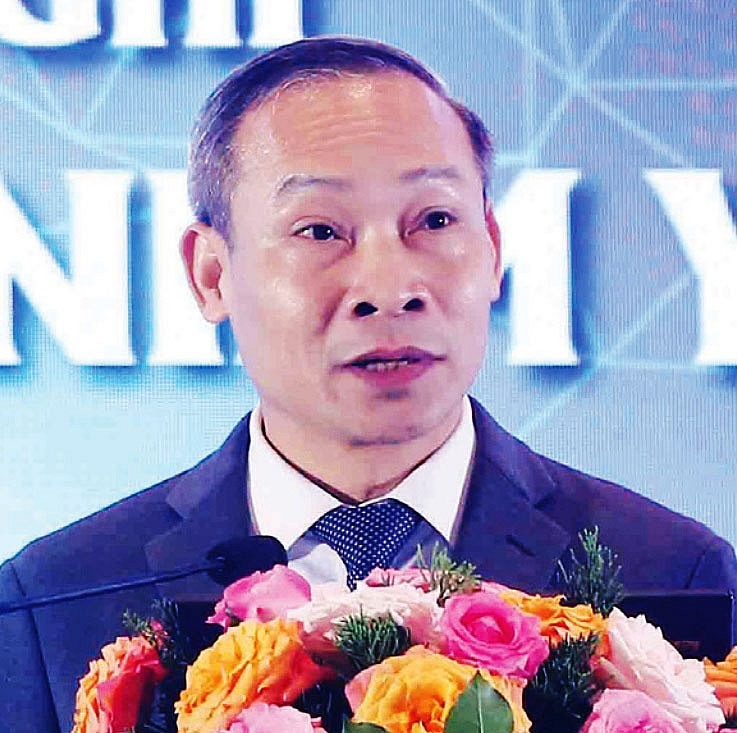Listed firms coaxed to adopt greener ways
 |
The Ho Chi Minh City and Hanoi stock exchanges, along with Vietnam Investment Review and fund management firm Dragon Capital, hosted the Vietnam Listed Company Awards last week.
The 16th edition of the awards this year showcased the resilience of businesses in overcoming unprecedented challenges. It was observed that the annual reports of the winning companies across all three capitalisation groups marked significant improvements from the previous year.
Vu Thi Chan Phuong, chairwoman of the State Securities Commission (SSC), said, “This prestigious event has increasingly become a hallmark of corporate excellence in Vietnam, particularly as the focus on sustainability intensifies and the country strives to elevate its status in the global stock market hierarchy.”
Acknowledging the real obstacles, Ha Thu Thanh, chairwoman of the Vietnam Institute of Directors, said that Vietnamese companies have yet to fully embrace environmental, social, and governance (ESG) considerations, representing a significant challenge in aligning with global standards and practices.
“The current state of corporate governance in Vietnam falls short of expectations, with considerable responsibility lying with the board of directors,” Thanh stated.
Le Tri Thong, CEO of PNJ, discussed the practical application of ESG standards in their operations.
“It’s about transforming theoretical principles into tangible actions across all company levels,” Thong said. “Just as cars have developed with technology and safety systems, PNJ is navigating its corporate journey with an enhanced ESG focus.”
Reflecting on the financial implications, he stated that although ESG appears as an expense, it is also an investment for future sustainability. “For instance, despite a recent decline in revenue, PNJ has maintained stable profits. This resilience is attributed to a growing customer base that values and supports the company’s steadfast commitment to its ESG principles,” Thong said.
On the flip side, Vietnam’s banking and financial sector is undergoing a significant transformation, with leading institutions like BIDV at the forefront of integrating ESG principles.
Deputy CEO Tran Phuong highlighted the bank’s strategic pivot towards ESG-compliant practices. “The future is not just about making investments, but making them sustainably. We are now ensuring that our investments and loans meet rigorous green criteria. BIDV has made significant strides in this area, providing green credit to over 1,500 clients, with a notable emphasis on renewable and clean energy projects,” Phuong said.
Phuong also elaborated on the bank’s lending policies, “Our focus is not only on the green nature of the projects but also on their potential to transform technology, enhance waste processing, and save energy.”
Nguyen Viet Thinh of the Association of Chartered Certified Accountants emphasised the growing importance of ESG in corporate Vietnam. He pointed to the challenges and significance of accurate sustainability reporting, particularly regarding greenhouse gas emissions.
“This year, we’ve seen breakthroughs in reporting quality, especially with the first enterprise disclosing assured greenhouse gas emissions data, a complex yet vital area,” Thinh noted.
Pham Nguyen Vinh, director of Business Development at Dragon Capital, stated that Vietnamese fund management companies are grappling with the challenging issue of disclosure and transparency.
“This challenge extends to companies with a commitment to responsible investment. Many businesses, initially unfamiliar with reporting practices, have now adopted national standards for annual financial statements and corporate governance, yet still struggle to meet global benchmarks. To attract international capital, transparency in information is critically important for Vietnam,” Vinh said.
The ecosystem perspective is crucial for understanding these dynamics. For instance, if a company wants to launch an ESG fund, it requires a corresponding basket of ESG commodities.
Recently, the Ministry of Natural Resources and Environment introduced a draft for the development of new financial instruments like green bonds and green finance. This initiative has identified a portfolio of 80 green projects, marking a significant step towards defining ‘green’ in the Vietnamese context, Vinh noted.
“Investors, both local and international, seek varying degrees of ESG disclosure,” Vinh said. He also referenced the complexity of related frameworks, citing EY’s consolidation of over 500 ESG metrics as an example of the diversity in this field.
On the capital markets front, Tran Anh Dao, deputy CEO in charge of the executive board, revealed, “The VNSI index has consistently outperformed the VN30 – the 30 largest market capitalisation companies in Vietnam – reflecting a stable and positive growth trend in our market.”
Citing a World Bank report, Dao underscored Vietnam’s need for substantial capital to fund its green transition, with an estimated $386 billion required by 2040. “The first step towards mobilising this capital is for companies to rigorously undertake sustainability reporting,” she said.
Meanwhile, the SSC has intensified its scrutiny of public companies, focusing on compliance and governance, as outlined by Le Trung Hai, deputy head of the Public Supervision Department under the SSC.
“In the last two years, we’ve seen a marked increase in compliance violations, addressing over 100 cases in 2022 and more than 120 in 2023,” Hai disclosed.
The Hanoi Stock Exchange in 2023 has specifically monitored the individual bond market, leading to the identification and processing of violations by companies issuing private bonds. A prevalent issue has been the adherence to the regulatory requirement for independent board members.
“Previously, the focus was on companies lacking any independent board members. However, the current emphasis is on ensuring an adequate number of independent members,” Hai explained.
| Phan Duc Hieu, standing member National Assembly Economic Committee
In a recent statement addressing legislative priorities, a key focus was placed on enhancing the quality of legislation, rather than merely adhering to schedules. The National Assembly emphasised that normative resolutions, once passed, are to be effectively implemented. A significant development in this regard is the adoption of the global minimum tax, with Vietnam reserving the right to levy additional taxes. This decision is pivotal, as failing to exercise this right would transfer it to other countries. Acknowledging the challenges of 2023, it was noted that the achievements of the year are commendable, reflecting the concerted efforts of the government, the business community, and the citizens. In evaluating the socioeconomic situation, it is essential to look beyond mere figures and consider the values they represent, including significant resources allocated to support individuals and businesses. A positive trend was observed in the economic indicators, showing improvement in subsequent months and quarters. The past year has been notably successful, especially in the wake of the state visit to Vietnam by General Secretary of the Communist Party of China’s Central Committee and Chinese President Xi Jinping. This visit has underscored the success of Vietnam’s diplomatic activities. Looking ahead to 2024, the unpredictability of the year was highlighted, along with the continued challenges faced by the business community. These difficulties may intensify due to increased competition for orders and markets, both domestically and internationally. Additionally, certain global trade policies are expected to impact Vietnam’s competitive edge. For 2024, the National Assembly has outlined comprehensive solutions, with two key strategies emphasised: prioritising economic growth while maintaining macroeconomic stability, controlling inflation, and ensuring significant economic balances. This year, a determined focus will be placed on fostering growth. Nguyen Thi Viet Ha, acting chairwoman Ho Chi Minh City Stock Exchange
The financial markets at large, and the stock market in particular, play a crucial role in providing the necessary capital for businesses to propel green initiatives, support sustainable programmes, and achieve social and governance objectives. The annual awards have been and continue to be a significant initiative in enhancing awareness and the implementation of quality corporate governance and sustainable practices within the business community. I anticipate that this conference will offer an opportunity for businesses to exchange experiences and contribute ideas, thereby further advancing the quality and impact of these awards. Additionally, we welcome new ideas that will ensure businesses remain at the forefront of understanding and action in sustainable development, making a tangible contribution to the government’s overarching strategy and commitments. |
 | Addressing ESG principles at the corporate level Sustainability is increasingly critical for the long-term success of Vietnamese listed companies. Dominic Scriven, chairman of Dragon Capital, spoke with VIR’s Song Huong about adopting environmental, social, and governance principles. |
 | Top strategies to employ for integration of ESG aspects Environmental, social, and governance (ESG) criteria are becoming increasingly important to Vietnamese businesses, with around 80 per cent having already made commitments to these criteria or planning to do so shortly. |
What the stars mean:
★ Poor ★ ★ Promising ★★★ Good ★★★★ Very good ★★★★★ Exceptional
 Tag:
Tag:
Related Contents
Latest News
More News
- Private capital funds as cornerstone of IFC plans (February 20, 2026 | 14:38)
- Priorities for building credibility and momentum within Vietnamese IFCs (February 20, 2026 | 14:29)
- How Hong Kong can bridge critical financial centre gaps (February 20, 2026 | 14:22)
- All global experiences useful for Vietnam’s international financial hub (February 20, 2026 | 14:16)
- Raised ties reaffirm strategic trust (February 20, 2026 | 14:06)
- Sustained growth can translate into income gains (February 19, 2026 | 18:55)
- The vision to maintain a stable monetary policy (February 19, 2026 | 08:50)
- Banking sector faces data governance hurdles in AI transition (February 19, 2026 | 08:00)
- AI leading to shift in banking roles (February 18, 2026 | 19:54)
- Digital banking enters season of transformation (February 16, 2026 | 09:00)






















 Mobile Version
Mobile Version